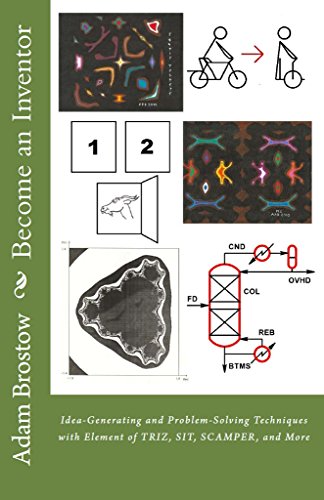Finding the right books for getting skills for problem-solving, innovation, creativity, design and decision making can be a daunting task – in the sea of books on these topics. Over the years speed readers coming to my speed reading course have brought hundreds of books that they’ve picked from bookshops and libraries. Here’s a selection of the top books that I and they found useful. The good thing about speed reading is that you can decide very quickly how useful the book is – just by looking at the cover, title, subtitle, TOC (table of contents), index, design of the book and layout as well as just by reading a bit of text to get the style and the depth of the information (this technique for choosing the best books is called ‘Preview‘).
Top books for problems solving and innovation

Become an Inventor- Idea-Generating and Problem-Solving Techniques with Element of TRIZ, SIT, SCAMPER, and More Kindle Edition by Adam Brostow
TRIZ (the Theory of Inventive Problem Solving) is a systemic approach for understanding and solving problems and is based on 40 principles of innovation. Most books on TRIZ are good and cover the same 40 principles. Start with
Become an Inventor: Idea-Generating and Problem-Solving Techniques with Element of TRIZ, SIT, SCAMPER, and More Kindle Edition by
40 TRIZ principles are Segmentation, Taking out, Local quality, Asymmetry, Merging, Universality, ‘Nested doll’, Anti-weight, Preliminary anti-action, Preliminary action, Beforehand cushioning, Equipotentiality, ‘The other way around’, Spheroidality, Dynamics, Partial or excessive actions, Another dimension, Mechanical vibration, Periodic action, Continuity of useful action, Skipping, ‘Blessing in disguise’, Feedback, ‘Intermediary’, Self-service, Copying, Cheap short-living, Mechanics substitution, Pneumatics and hydraulics, Flexible shells and thin films, Porous materials, Colour changes, Homogeneity, Discarding and recovering, Parameter changes, Phase transitions, Thermal expansion, Strong oxidants, Inert atmosphere, Composite material
